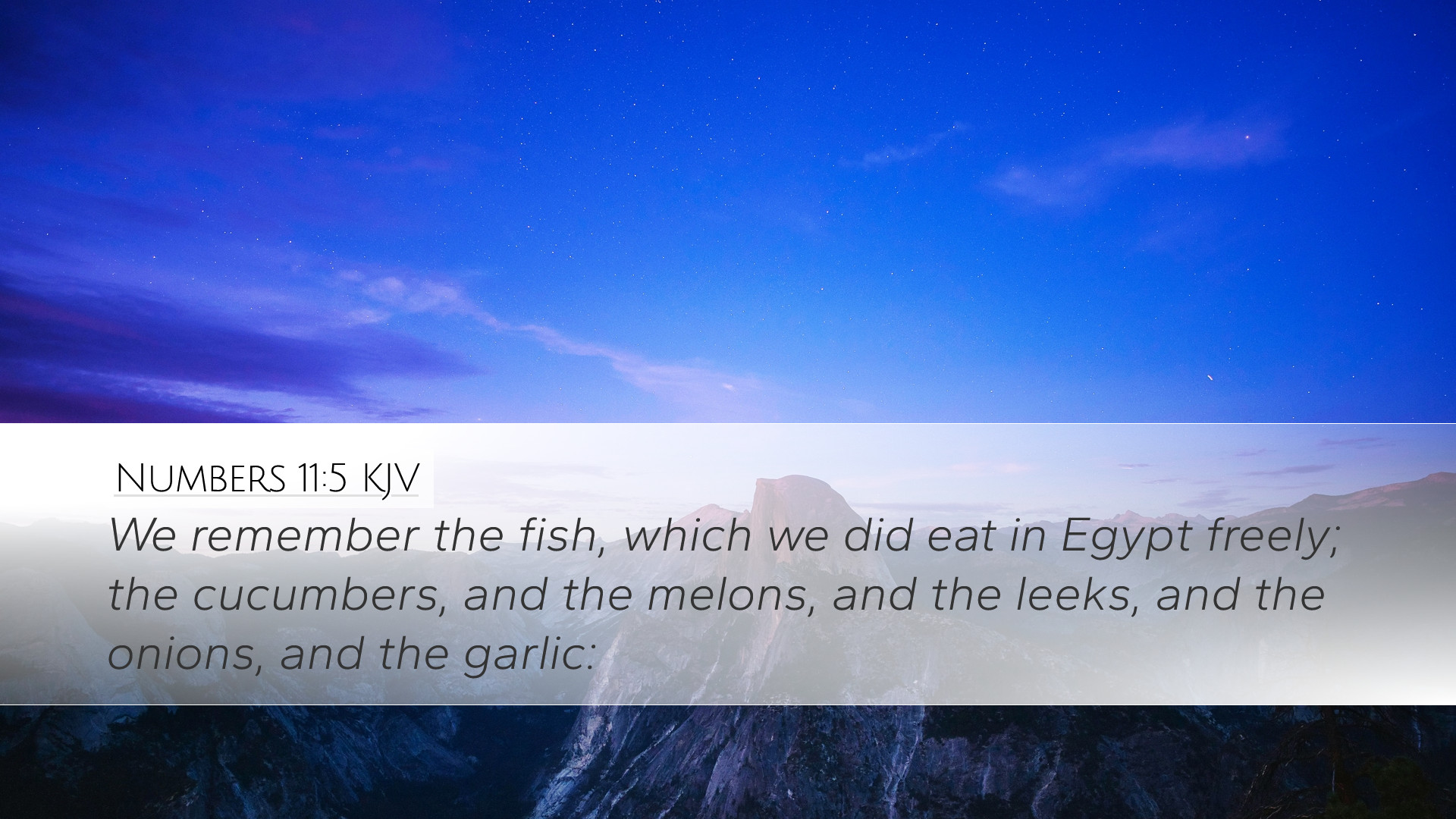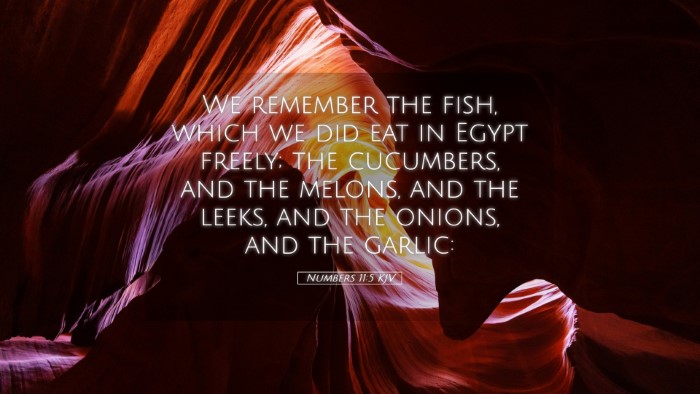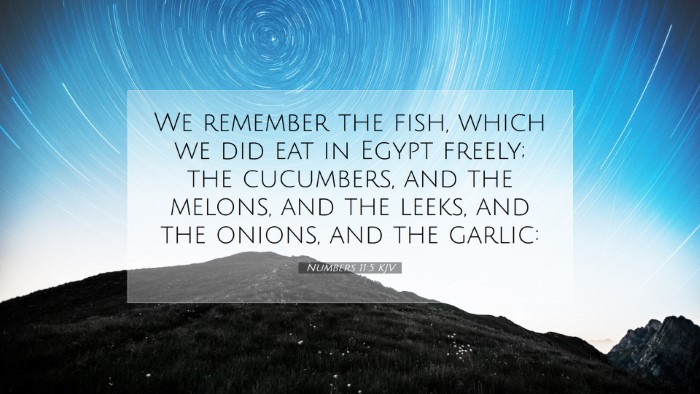Commentary on Numbers 11:5
Numbers 11:5 states: "We remember the fish, which we did eat in Egypt freely; the cucumbers, and the melons, and the leeks, and the onions, and the garlick." This verse portrays a moment of longing among the Israelites as they recollect the various foods they enjoyed while in Egypt. Their nostalgia unveils deeper themes of dissatisfaction and the challenges of faith during their wilderness journey.
Contextual Overview
The Israelites, having recently escaped from Egyptian bondage, began to express dissatisfaction with the provisions of manna bestowed upon them by God. This moment highlighted not only their physical needs but also their emotional and spiritual state. Several public domain commentaries shed light on this pivotal verse.
Insights from Matthew Henry
Matthew Henry notes that the Israelites' complaint reflects a fundamental struggle between comfort and obedience. He emphasizes that their nostalgia for Egyptian food represents a longing for the past, despite the harsh realities of their enslavement. Henry points out:
- Contrast of Provision: While they remembered the fish and vegetables, they forget the severe oppression they endured in Egypt.
- Spiritual Implications: This longing illustrates a common human tendency to romanticize past hardships when faced with present challenges.
Reflections from Albert Barnes
Albert Barnes provides a detailed analysis about the consequences of such cravings. He observes that nostalgia can often lead believers into discontentment, pulling them away from faith in God’s provision. Key points from Barnes include:
- Manna as God's Miracle: The Israelites overlooked the miracle of manna, a gift directly from heaven designed to sustain them in their journey; instead, they fixated on their cravings.
- Gratitude vs. Grumbling: Barnes highlights that ingratitude for God’s providence can breed resentment and rebellion, marking a pivotal spiritual failure.
Thoughts from Adam Clarke
Adam Clarke’s commentary focuses on the specific foods mentioned—fish, cucumbers, melons, leeks, onions, and garlic. Clarke elaborates on the cultural and nutritional significance of these foods and how their absence is profoundly felt in the wilderness. He emphasizes:
- Symbol of Abundance: The richness of Egyptian food symbolizes abundance and comfort, which sharply contrasts with the barren conditions of the desert.
- Identity Crisis: Clarke points out that in reminiscing about Egypt, the Israelites reveal an identity crisis, grappling with their new role as God’s chosen people.
Theological Implications
This verse serves as a profound reminder of the human condition, particularly the struggle between old comforts and new realities. For pastors, theologians, and students, it raises significant questions regarding how we handle dissatisfaction with God’s provisions:
- Nostalgia vs. Faith: How can we maintain faith in God’s current provisions while being tempted to look back at our past?
- Provision and Purpose: What does it mean to trust in God’s provision even when it seems insufficient or undesired?
Conclusions and Reflections
In conclusion, Numbers 11:5 holds rich lessons for believers. The Israelites’ lamentation about their diet in Egypt is not merely a complaint about food but a profound spiritual reflection on trust, gratitude, and the challenge of recognizing God’s sustenance in our lives. Drawing from Matthew Henry, Albert Barnes, and Adam Clarke allows us to delve deeper into not only the historical context of the Israelites but also the timeless truths that apply to our daily walk with God.
Reflections for Further Study: As you meditate on this passage, consider the following:
- What can you learn from the Israelites' perspective on God's provisions?
- How can you apply the lessons of gratitude in your life today?
- In what areas of your life might you be tempted to look back rather than forward in faith?


